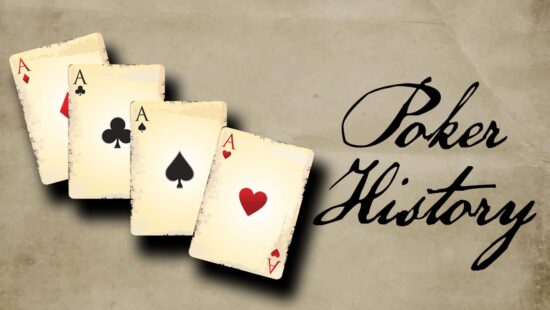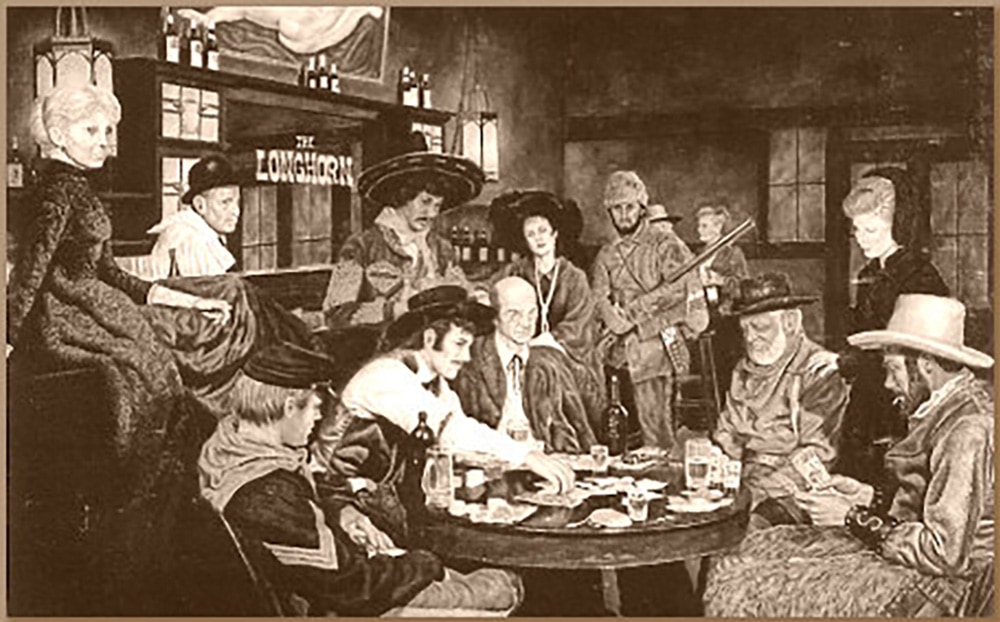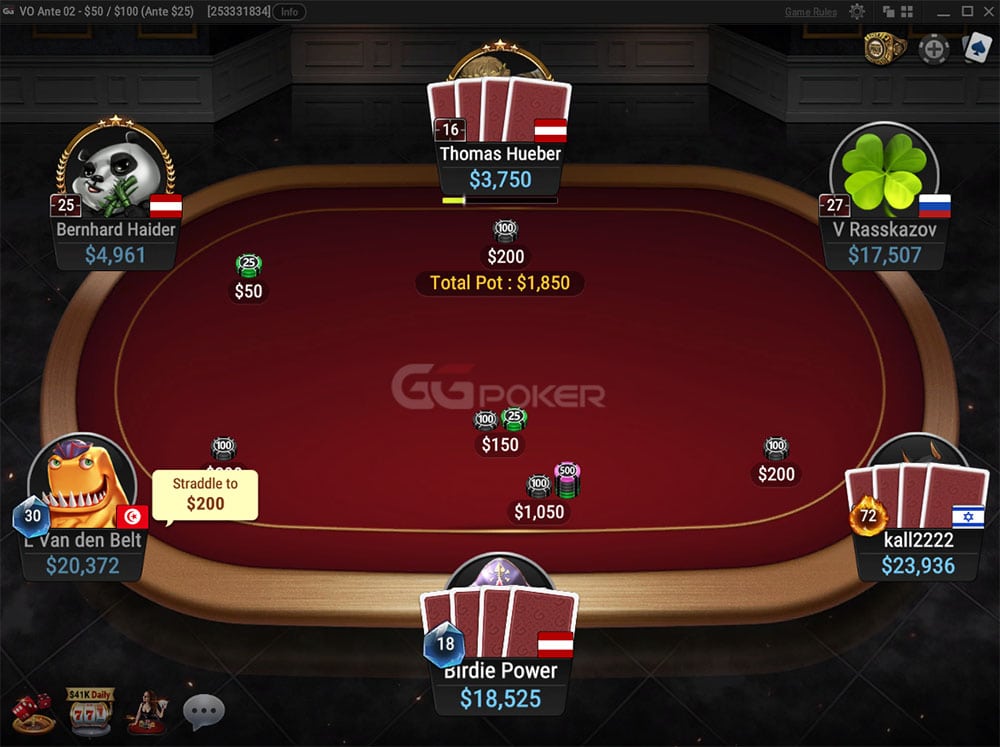A Brief History of the Poker Card Game and How it Has Evolved Over Time
- By: Sean van der Merwe on November 15, 2021
- Categories: Gaming

One can very rarely have a decent conversation about “staking games” without the topic of the poker card title coming up somewhere along the line. The excitement of the internationally acclaimed title, coupled with its various associations make for fabulous Hollywood storylines. Many famous gambling-themed films and books use the card game in their dramatic plots to attract its viewership/readership. That’s because poker history is fraught with tales of crime, action, and suspense that are worthy of exploration and dramatization.
Nowadays, poker is an international game, played and watched by millions. Annual tournaments, like the World Series of Poker, attract a massive viewership each year. But, like everything in life, poker has a backstory. If you’ve ever wondered about the origins of the game, then we urge you to read our article and explore with us the story of poker history in this brief overview.
What is Poker?
Some of you may have heard of the poker game, but that’s where it ends. For this Poker Card History article to make any contextual sense, it is probably best that you know what the game is about.
According to the Britannica Encyclopaedia, poker is “played in various forms throughout the world, in which a player must call (i.e. match) the bet, raise (i.e. increase) the bet, or concede (i.e. fold). Its popularity is greatest in North America, where it originated.”
While there are various versions of poker card games nowadays, the basic elements are the same. Poker comprises a five-card hand. There are various poker rankings (combinations) playable. Some combinations are more valuable than others. The value of each hand is directly proportional to the rarity of its potential frequency when dealt from a 52-card deck.
In poker cards, players engage against one another. The contestant with the highest 5-card hand wins the staked pot in any given round. While social games can have pots of only a few cents each, professional games often involve massive amounts in a single pot.
Poker is a strategic card game that involves a tremendous amount of strategy and skill. The art of reading people, along with various other decision-making processes will determine the degree of success you enjoy while playing the game.

Western Saloon Poker Table – Source Unknown
Poker Card Game History
Poker, as described above, has only been around since the mid-1800s. However, Poker card history dates back nearly 1000 years. While the ancient games were not the finished product we have today, they provided a necessary platform and a precedent from which the modern game could evolve.
The earliest tie to poker is alleged to have come from a prominent domino game in China in the 10th Century. There are other parties that argue that a more likely starting point for poker history was Persia in the 16th century. There is no telling where the point of genesis starts, but it is not unreasonable to entertain both theories. History, in general, shows over and over that people adopt ideas and mold them into something distinct. This could be the very case with these two theories. The Persian game (As Nas) could quite easily be the descendant of the Chinese option and therefore a co-contributor to the modern game.
What we do know for sure, is that poker is a direct derivative of its French predecessor, Poque, and its German equivalent, Pochen. These two titles were highly popular in the 17th Century before making landfall in North America through the French Colonists. These two titles were direct decedents of the Spanish Game, Primero, dating back to 1526. The Spanish game is often thought of by historians as having the closest resemblance to the modern poker card variants.
Poker – The American Card Game
It was in Louisiana that English-speaking colonists rebranded the game as “poker” and added all the newer features that we are familiar with now. These include the five-card hand and the 52-card deck. The first official version of the original poker card title became published in 1805, but the modern game finally commenced with a 52-card deck in 1834. This year, Jonathan H. Green would produce the earliest piece of literature on the game. It was he who coined the term “poker” and referred to it as the “Cheating Game” in his book, “An Exposure of the Arts and Miseries of Gambling”
Poker card entertainment spread from New Orleans up the Mississippi via the steamboats on the great river’s waterway. As a result, there is historical documentation of both the Northern and Southern armies enjoying the game during the American Civil War. It also became a regular at Western saloons during the spread of the New Frontier from 1870 onward.
The game was later introduced to England and Europe in 1871 when Queen Victoria allegedly overheard the US ambassador to Britain explaining certain poker card hands to members of her court. But it wasn’t until World War I before the game would anchor itself in Europe. This is thanks to the influence of American soldiers on the front.
The Cheating Game
Mr. Green’s term, the “Cheating Game” was not unfounded. Poker history clearly showcases an opportunistic game where chance takers would often try to pull the wool over the eyes of opponents in an attempt to con them out of their money. Alas, this resulted in the death of many men around the poker card table.
Even once casinos released the game into the commercial space, operators struggled to control cheating. It wasn’t until the introduction of the World Series of Poker in the 1970s, that the game managed to build a credible reputation again. Benny Binion and his sons set about installing this poker card tournament, restoring the status of the game along the way. It would permanently rid the professional scene of its negative stigma.
Today, poker is a revered card game, and the industry has come a long way. Regulation is tight and the poker card rules are strictly adhered to. The professional scene is televised, and all the modern monitoring equipment used at tournaments and at online sites totally eradicated the chance of cheating.
The Evolution of the Poker Card Variants
As we have said before, Poker started out as a 5-card game. As such, the earliest derivative of the game was dubbed 5-Card Draw. 5 Card draw is a closed-handed game whereby the players should bet on their likelihood of the best hand before playing down. Upon receiving 5 poker cards, players could choose to exchange between 1 and 5 of them for new ones. This new hand would then serve as your outcome. If your ranking was the highest at the poker card table, you would win the pot.
Other derivatives of the game would evolve from the original. As such, we now have options like 7-card stud, 3-card poker, Texas Holdem, Omaha Poker, and more.
While one of the newest poker options (established in the 1970s), Texas Holdem is one of the most popular versions, thanks to the World Series of Poker. All reputable poker card rooms and poker sites will offer Holdem to their players.
The game plays out with 5 table cards. All players receive two cards each from the dealer. The aim is to make the highest combination you can from the two cards in your hand combined with the table cards. You can place numerous stakes throughout the course of one game round, as more cards land on the table.
Did you know that American and British English have been influenced by Poker? We use many of the terms of the game in everyday life. Some of these sayings include: Having an “Ace up your sleeve”, “calling your bluff”, you have a “poker face”, “pass the buck”, “up the ante”, “wild card”, and “it beats me”.
The Legal Landscape of Poker History
There is probably no game more popular among real money gamblers than Poker. Of course, we use the term ‘gambler’ loosely, as many people regard it more as a game of skill. As such, the authorities do not usually class poker together with casino games in many gaming jurisdictions around the world. Instead, it is a skill-based card game that you can play for real money stakes.
In fact, a Federal court case in 2012 lawfully established that poker was, indeed, a game of skill. The ruling by Judge Jack Weinstein found that poker could not be classified as gambling in strict terms. This was heralded as a major victory for the game and its fervent followers.
Be that the case, there are still very strict rules about who can host poker games and how they can host them. Social games are lawful in many US states and other countries around the world if players abide by strict terms. These laws vary from region to region, but often include some of the following general stipulations:
- A social poker game can only include players that know one another.
- No public advertising of the games.
- The host may not charge for running the gaming, nor can he/she take a rake of the stakes.
- No professional players may attend the game.
Legitimate poker rooms must be properly licensed to host professionally advertised games and take a rake off the earnings. Fortunately, because of poker’s classification in the eyes of the law, there are many countries that allow this game option, even when traditional gambling is illegal.
The strict poker card rules about hosting games were evidently necessary for poker because of organised crime in the past. Mobsters were using the gaming pastime to launder money. This remains the foremost risk in the poker sphere to this day. However, regulators and gaming rooms are more alert to these types of practices and work tirelessly to cut them out of the industry.
Modern Poker
Poker history was rich with drama, but it’s all worthwhile in the end. Thanks to the developments in technology, the game is able to reach crowds around the world at the same time, thanks to online poker card sites. Here, international players can join up and play from their desktop or mobile device in a seamless and exciting manner. There is really no need to travel for your entertainment at all.
At the rate of growth showcased in poker history, it will be interesting to see what poker card innovations and adaptations we are likely to see a century from now. All we know is, that the prospects for the game can only get better. As legislation settles and the game becomes accepted in more and more regions, we can only expect that the notoriety of poker should increase well into the future.






